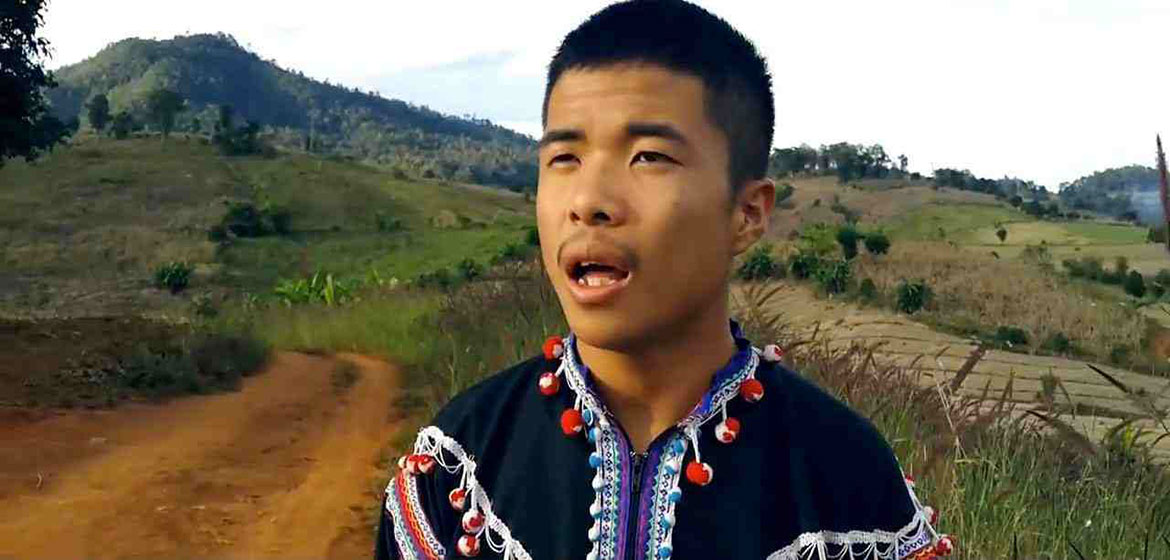PEOPLE IN Chaiyaphum Pasae’s hometown say they still live in an atmosphere of fear, as they continue to suffer from misconduct and power abuses by military officers, even one year after the activist’s death.
Yesterday marked the first anniversary of the death of the young Lahu activist, who was shot by a soldier at the Ban Rin Luang military checkpoint in Chiang Mai’s Chiang Dao district on March 17, 2017. A year later, the conflict between the military and Lahu minorities remain high and the witnesses and others involved in this case say they are devastated by the oppression of the authorities.
Litigation in the case of Chaiyaphum’s extrajudicial killing is still ongoing, yet the truth about his death remains a mystery, largely because surveillance camera footage from the scene – the most important evidence – has never been used in court. It is still unclear to the public what really happened to this footage, but the authorities say it cannot be retrieved from the hard drive on which it was recorded.
Maitri Chamroensuksakul, a Lahu human rights defender and Chaiyaphum’s mentor, said that the Lahu people continue to face oppression by the military. Even though Chaiyaphum’s death had caught the public’s attention, the Army was still launching oppressive operations against members of the ethnic-minority community. Especially targeted are those who had a close relationship with Chaiyaphum.
“The military launched many operations by using drug-dealing suppression as a reason. They arrested many people in the community, including my sister-in-law. These oppressive behaviours inflict fear among the people and even worsen the tension between the people and the military,” Maitri said.
He said many people, including him, were the targets of oppression that caused an additional heavy burden on the already-hard lives of Lahu people.

“We have seen many incidents of misconduct and unjust treatment just because we want to seek justice. Chaiyaphum was not the first victim of extrajudicial killing in the Lahu community and I don’t know that he will be the last, as I also face threats to my life,” he said.
Maitri said the threats had meant that he and his family had to relocate to the city, which resulted in financial problems, while his children had to drop out of school.
Lahu people have long been seen as accomplices to transboundary drug-dealing crime networks in the eyes of the authorities, especially the military. The conflict between the Lahu community and the military has intensified in recent times.
Meanwhle, Sumitchai Hattasan, head of the team of lawyers representing Chaiyaphum’s family, said that that the court had just finished the witness interrogation process on Friday, without reviewing the CCTV footage. The court will read an order on the investigation into his death on June 6.
Sumitchai said that the CCTV footage was not used in the court litigation because the police did not send this evidence to the attorney. They claim that they cannot retrieve the footage from the hard drive, so the court decided to dismiss this evidence and rely on witnesses’ accounts instead.
“We have tried all available options to demand the release of CCTV footage, because people’s words can twisted. Video footage cannot be twisted, and could give us very clear evidence of what really happened to Chaiyaphum, but we still cannot get to this prime evidence,” he said.
The Army had handed over the hard drive containing this CCTV footage to the police on May 13, but the Royal Thai Police’s Central Police Forensic Science Division stated that the footage could not be retrieved.
Sumitchai said eight witnesses from the military side gave testimony to the court, while there were two witnesses from Chaiyaphum’s family side.
There was conflicting information related to the death, as the soldiers claimed that they had found 2,800 amphetamine pills in his car and he had tried to fight the officers with a hand grenade.
However, according to earlier reports, many witnesses at the scene told a different version of the story. They said they had seen Chaiyaphum beaten and then shot dead.
Source:
Related to SDG 10: Reduced inequalities and SDG 16: Peace, justice and strong institutions



